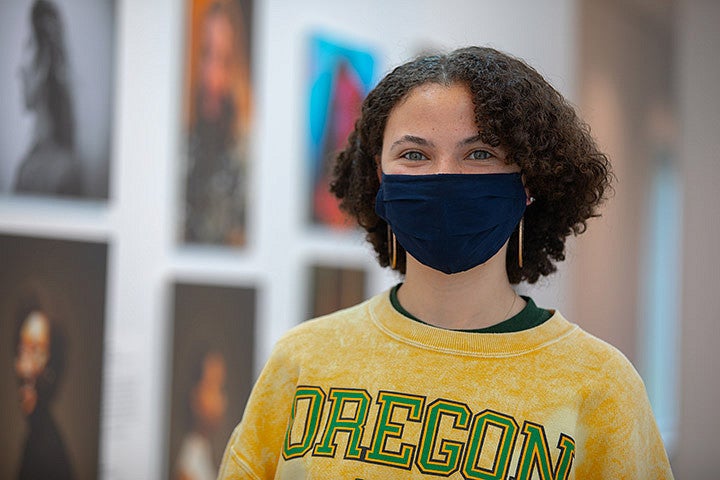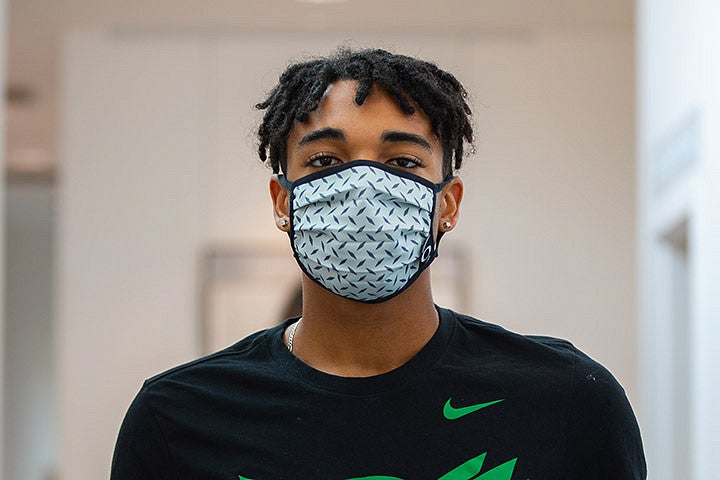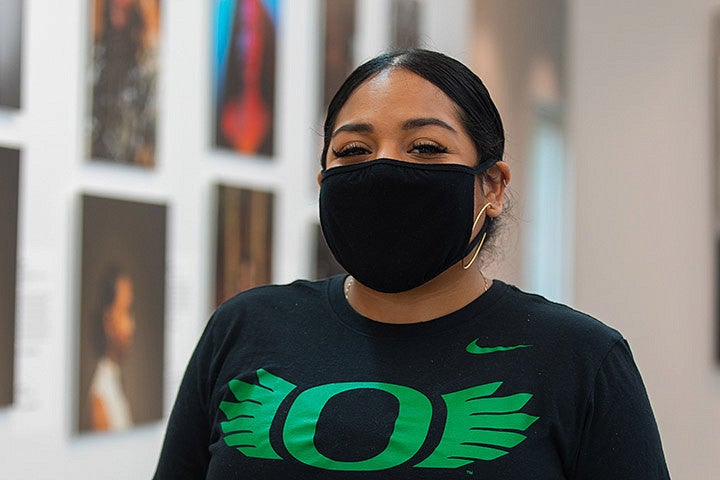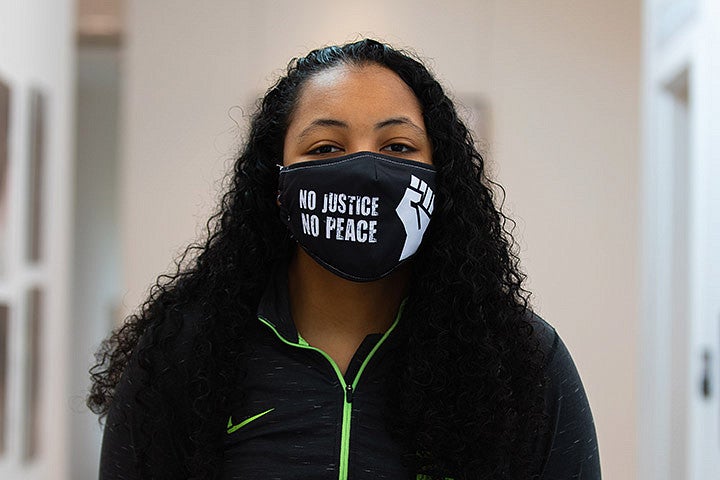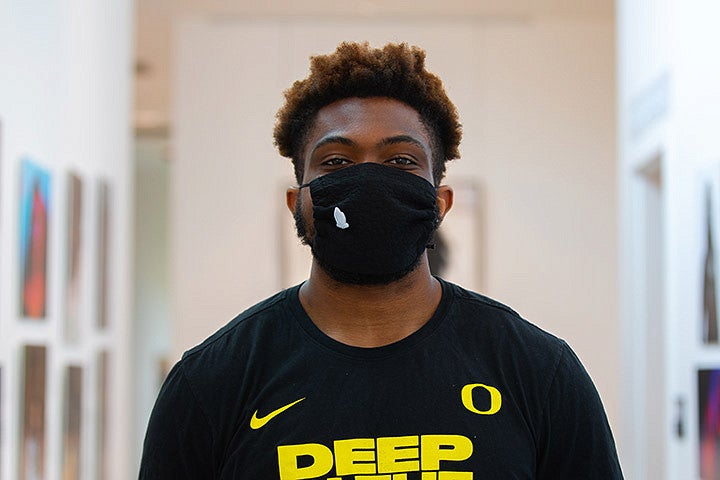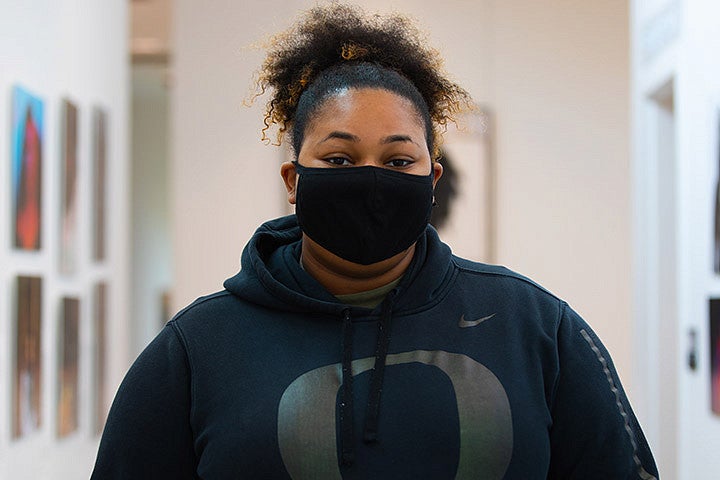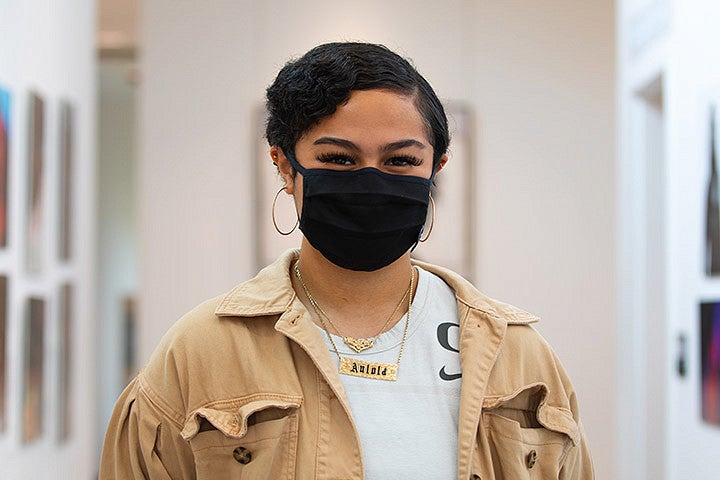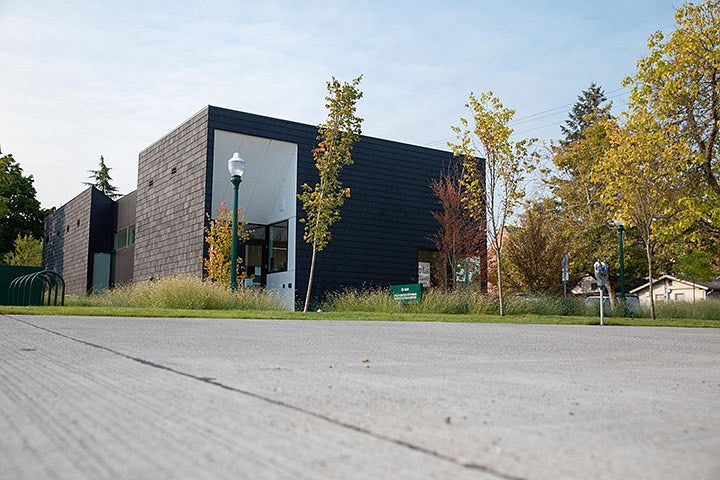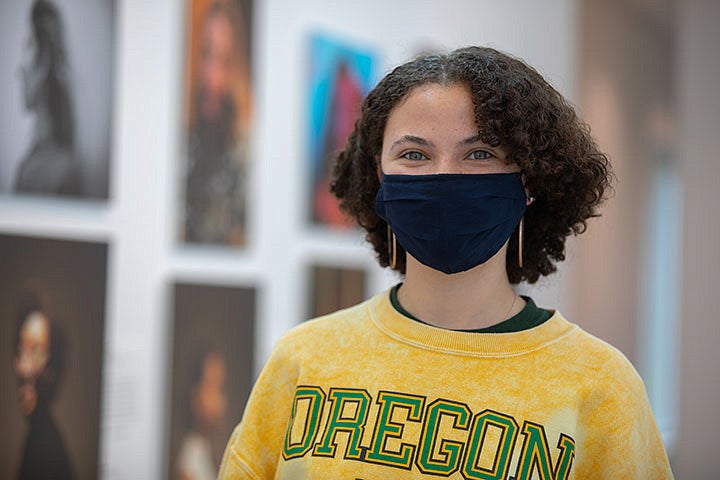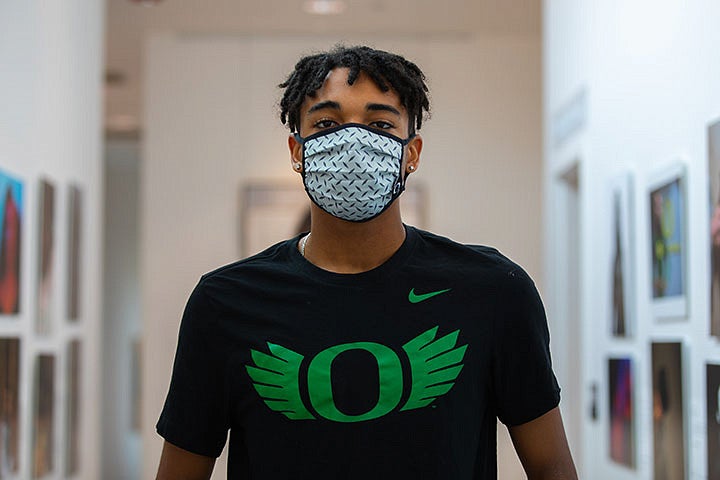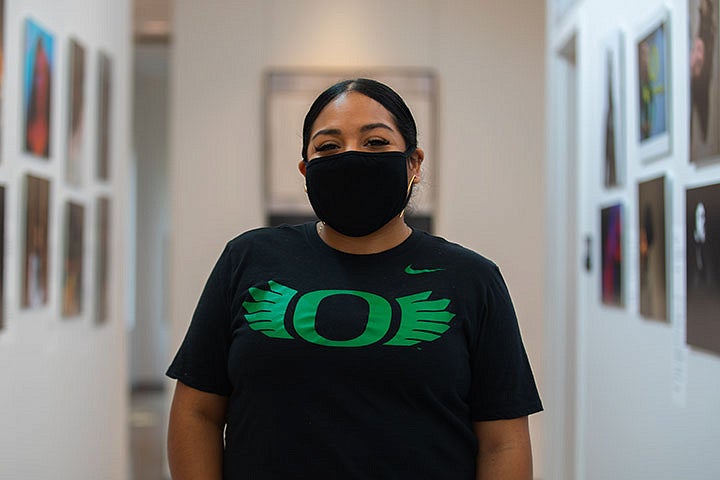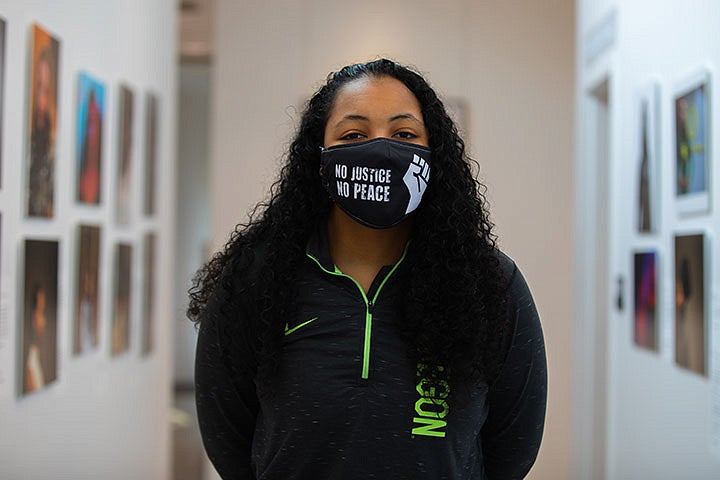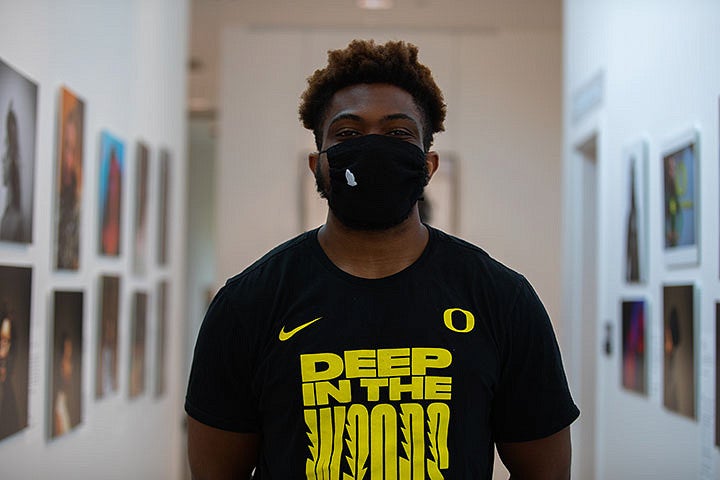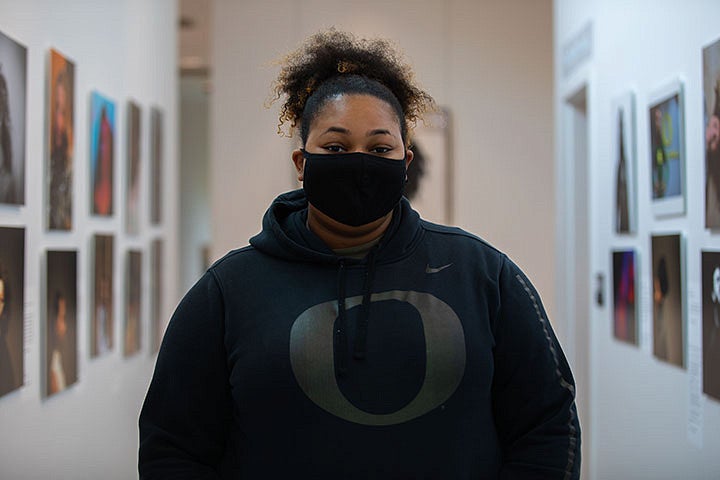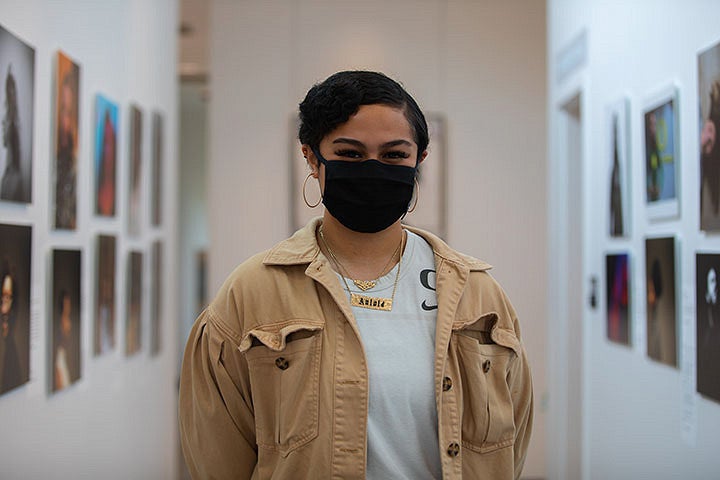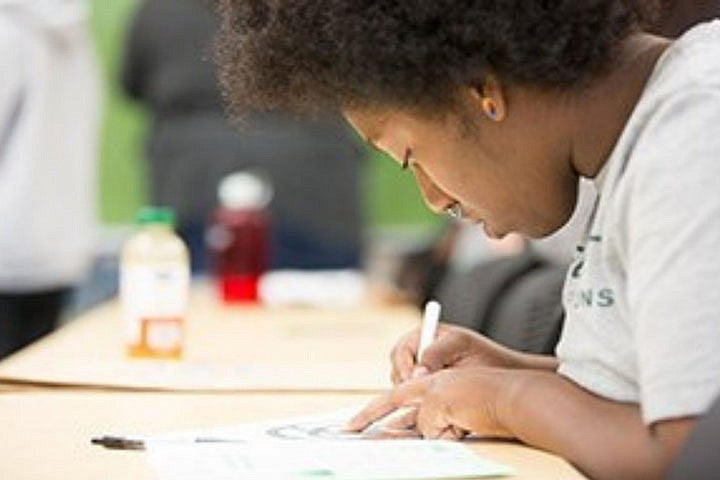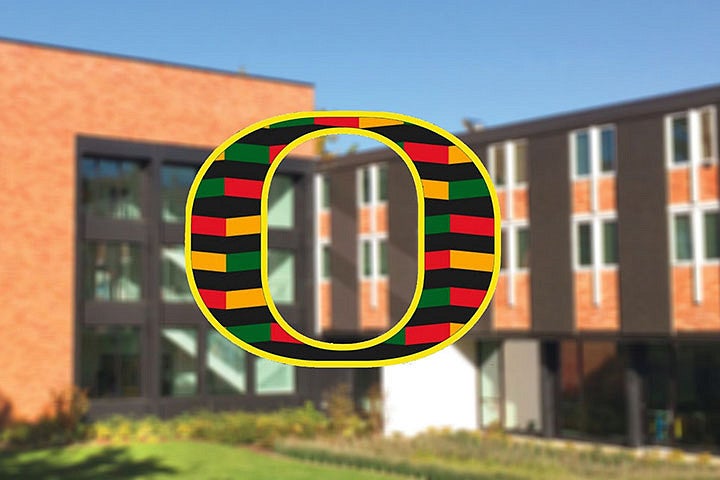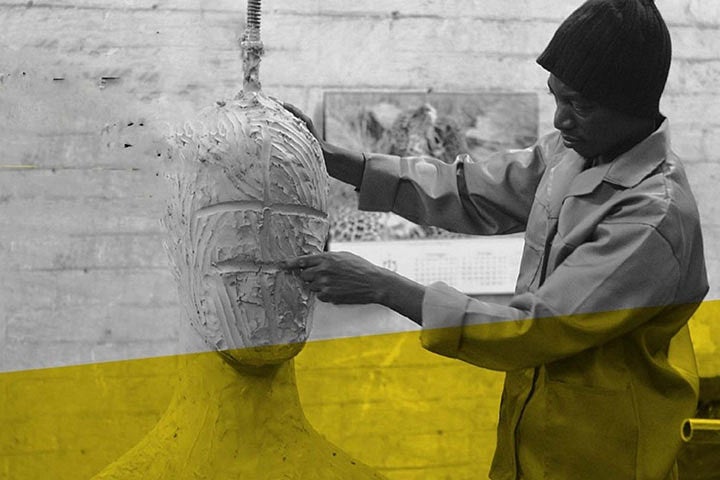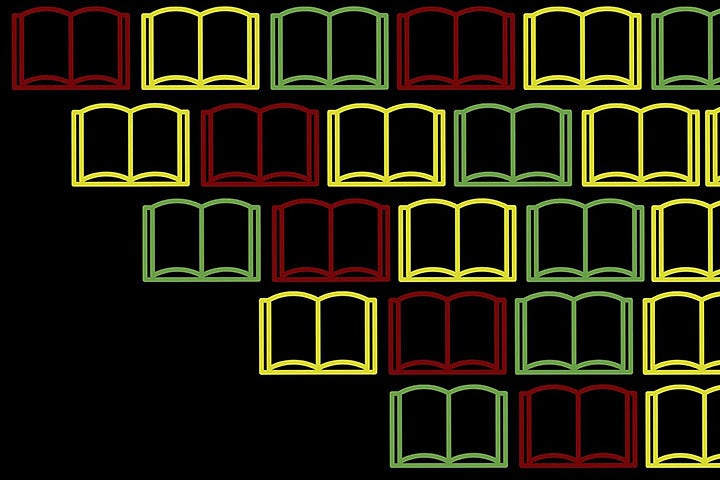Adapting to a mostly virtual world, the Lyllye Reynolds-Parker Black Cultural Center has built strong bonds and provided support and pride for Black students, faculty, and staff.
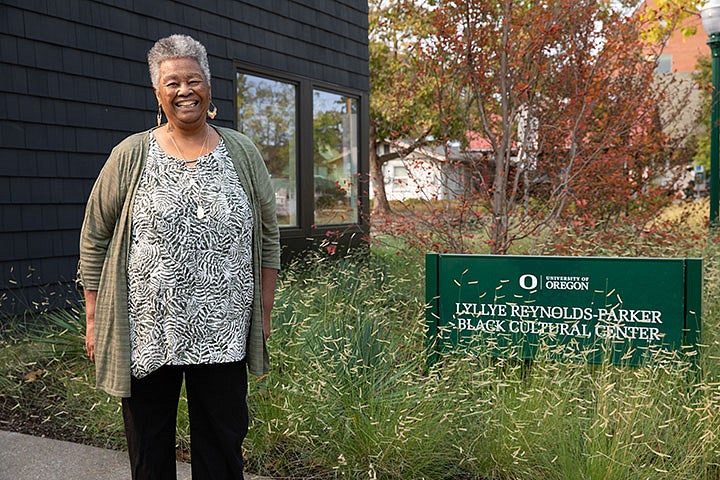
On October 12, 2019, the Lyllye Reynolds-Parker Black Cultural Center opened its doors after literally generations of demands. In 1968, members of the Black Student Union protested and asked for programs dedicated to their distinct needs. In 2015, members of the Black Student Task Force’s list of demands included a cultural center. In 2017, a formal proposal and fundraising were initiated, following a lead gift from Nancy and Dave Petrone.
At the opening of the center, Shaniece Curry, a 2016 alumna and president of the Black Women of Achievement a group that helped spark the 2015 effort, honored those who turned the center into a reality. “To be clear,” she said, “black students on this campus willed us to this day”
It has been a year since “that day,” which Curry spoke of though surely not the year expected. In an interview with Aris Hall, coordinator of the center, she spoke of the changes over the year for the center and the vision for this year and beyond.
What has this year been like for the center?
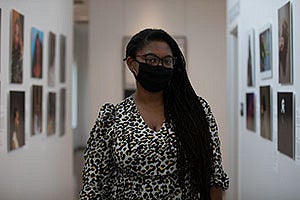
“The Lyllye Reynolds-Parker Black Cultural Center (LRP BCC) was just starting to gain traction with students when the pandemic hit and we were forced to close the center. The LRP BCC pre-COVID was a place where students would come to do homework and student organizations held their weekly meetings. The first large-scale event we hosted was Soul2Soul: Black History Kick-Off and Networking with more than 80 students, faculty members, and staff in attendance. We also partnered with the University Counseling Center to host Let’s Talk during winter term.
After COVID-19 we had to change course.
We continued to offer Super Soul Tuesdays virtually, providing holistic academic and cultural support and created an Instagram Live show entitled Nuanced Griot: Community Conversations. This allowed Stella-Marie Akindayomi, Multicultural Academic Counselor and Black/African American Student Retention Specialist, and myself to speak with a variety of campus partners about identity, academics, and professional and personal development for Black students.
This fall, we have continued to offer these initiatives as well as our first BCC Welcome, A Family Affair, an in-person, physically distanced event. My staff and I are finding creative ways to connect with students remotely when we are not able to do in-person events.”
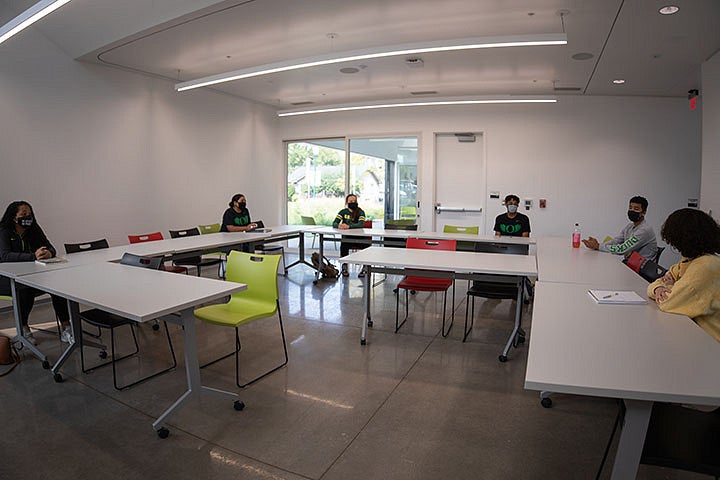
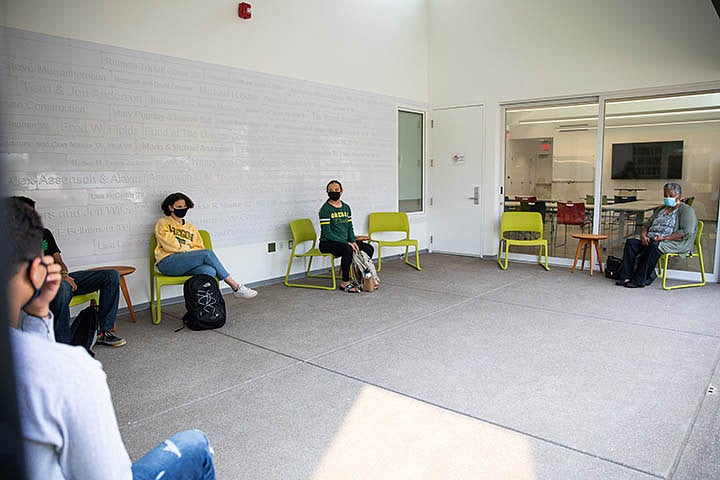
How is the BCC providing support for Black students, faculty, and staff given our current environment with Black Lives Matter and calls for racial and social justice systemically and individually?
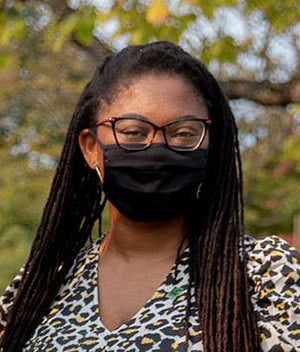
“I don’t like to consider Black Lives Matter a movement, civil/human rights is the movement. Black Lives Matter is a call to action for non-Black folks to see, hear, and understand the multitude of systemic injustices Black people encounter on a daily basis. Systemic racism exists not only at your local grocery store but also in corporate America as well as institutions of higher education. The University of Oregon is not exempt of this, and Black students, faculty, and staff have experienced this at different times.
When news and social media popularized the killings of Ahmaud Arbery, George Floyd, and Breonna Taylor—just to name a few—the LRP BCC worked with the Black Strategies Group leadership and Black Academic Excellence Team to develop a statement to stand in solidarity with our Black students, faculty, and staff. Notwithstanding, a statement and social media post are not enough.
We also held two town halls and continue to empower and remind the UO community the importance of why Black Lives Matter, and what resources non-Black folks can use to better educate themselves to go beyond being an ally. We continue to want Black individuals at the UO to know that they are not alone.
The LRP BCC has a strong desire to bring attention to the disparities within the Black community and wants to continue to move the needle and contribute to the recruitment and retention of Black students, faculty, and staff, as well as matriculation of Black students, in spite of the systemic racism and injustice not only on this campus but within the US. To do this the center will continue to offer programming and initiatives that will emphasize academic development, social connectedness, and cultural pride. Whether we are remote or in-person, Black lives and their success, no matter their status, at the UO is the priority.”
How can the university, institutionally and as a community member, support the center?
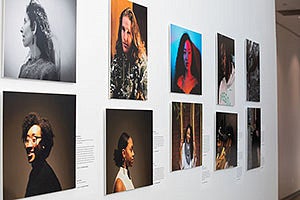
“To grow, progress, and evolve, UO must not only put out statements but do the work through organizational infrastructure, intentional recruitment and retention of Black students, faculty, and staff, and financial support through scholarships and equitable pay.
I am in the midst of conversations about some of these things; however, it cannot only be the LRP BCC and/or Black Strategies Group leading the charge for these efforts. The way to make this sustainable and viable once the hashtags stop trending is to develop practical action plans that are not Band-Aids for surgical cuts, but rather with methodical precision foster an environment where change is not temporary.
This evolution of change can only begin when leadership acknowledges the wrong, communicates with those who have been hurt, which then can begin healing and developing trust among those who have been wronged.”
What are some of your overarching reflections on year one of the BCC and thoughts for the future?
“The LRP BCC has experienced a lot of firsts over the last year. But the most rewarding things that have come out of this is connecting Black students to one another as well as connecting them to Black faculty and staff to whom they may have not been connected.
It has been a joy opening the LRP BCC in spite of us not being physically open for the latter half of the year. But we have made it work. I am encouraged by the relationships and community that has been created over the last year, and we will continue to curate an environment to engage academic success, social development, and cultural enrichment and pride for Black students, faculty, and staff at the University of Oregon.
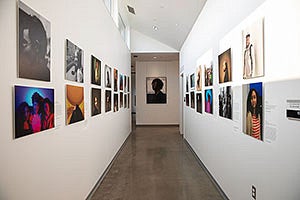
As the LRP BCC continues to grow and evolve in its offerings, I hope we are able to increase our staff to ensure that we have the capacity and bandwidth to do the many things we desire, including building out our programming and initiatives to meet the myriad needs, wants, and desires that our students have. It is important to me that we get buy-in from a multitude of individuals and offer an array of opportunities that gauge multiple interests. As this year progresses, I will be working on a strategic plan that will highlight my student staff and my ideas.
Lastly, I hope that Black students, faculty, and staff continue to know that the LRP Black Cultural Center is an available resource no matter if our physical doors are open or not.”
In a year’s time, Hall, the LGP BCC team and the campus community have built what Maria Mbodji, a business major who was part of the center’s planning committee, spoke of at the groundbreaking. “When I started out here, I wanted to find my community and find my people,” she said. “When the center is complete, people won’t have to look that hard anymore to find community, because we’ll have the Black Cultural Center, and it will be a haven for them.”
Happy anniversary, Lyllye Reynolds-Parker Black Cultural Center.
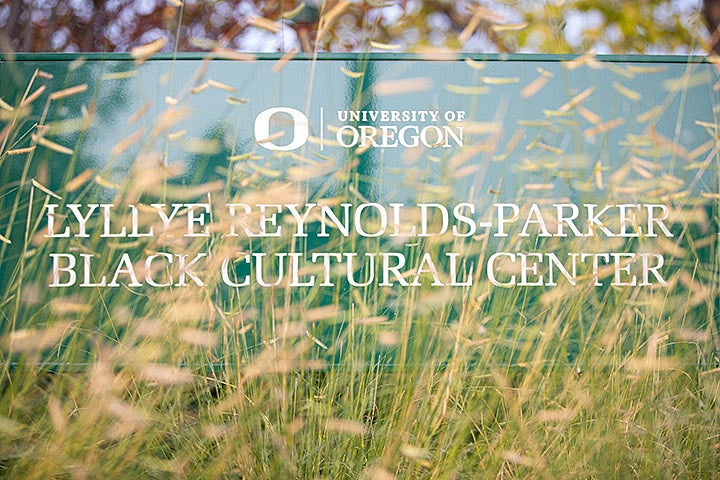
Happy anniversary, Lyllye Reynolds-Parker Black Cultural Center.
By the Numbers
-
1968
Members of the Black Student Union protest and ask for programs dedicated to their distinct needs.
-
1991
Lyllye Reynolds-Parker received her BA from the UO.
-
2015
Members of the Black Student Task Force’s list of demands includes a cultural center.
-
2017
Formal proposal submitted.
-
January 2017
Gift of $250,000 from Nancy and Dave Petrone kicks off formal fundraising campaign.
-
October 2018
Groundbreaking ceremony.
-
August 2019
President Michael H. Schill proposes to board that new Black Cultural Center bear the name of Lyllye Reynolds-Parker.
-
October 2019
Opening of the Lyllye Reynolds-Parker Black Cultural Center.
-
February 2019
Super Soul Tuesdays launched.
-
April 2020
Nuanced Griot: Community Conversations launched.
-
October, 2020
BCC Welcome, A Family Affair held.
-
October 2020
One-year anniversary.
Happening Events
The LRP BCC has a number of exciting events planned for the coming academic year that can take place digitally or in-person, including:
- Black History Month: For Black History Month, the BCC will work with campus and community partners to create outreach opportunities for UO students and other members of the Eugene-Springfield community to learn more about Black heritage, culture, and anti-Blackness/anti-racism.
- Black Love: Love is explored in its many different forms with help from different UO programs and departments in order to encourage healthy relationships.
- State of Blackness: A once-a-term, theme-based forum for Black students, faculty, and staff to come together to discuss issues facing Black people.
- Social Sundays: Home Cooked Edition – In an effort to engage students remotely, we have changed this monthly program initiative to offer up to 40 students the opportunity to get a make a meal at home box with a friend or roommate. This is a collaboration with UO Catering to have students share in the experience of learning how to cook a home cooked, soul food style meal at home.
- 2020 – 2021 programming will also include continuations of 2019 – 2020 favorites Super Soul Tuesdays—a weekly, holistic "check-in" featuring study tips, career advice, and personal finance coaching—and Nuanced Griot: Community Conversations—a series of digital conversations with Black faculty and staff focusing on contemporary Black experiences, such as myriad of intersectional identities and self-care during the current pandemic of systemic racism.
The Lyllye Reynolds-Parker Black Cultural Center hosts student activities and cultural programming alongside art and exhibits celebrating Black heritage and history. COVID-19 has dramatically changed center operations. Nevertheless, the Center continues to offer a welcoming, supportive space (albeit virtual) where Black students at the UO can harness academic, social and cultural resources they need to navigate their experiences at the UO.
The BCC has continued its weekly student support program called Super Soul Tuesday. Academic and career specialists now connect with students using Zoom. Looking to the future, the center is planning for safe and effective operations regardless of what the new academic year brings.
For Information about these and other events, check the LRP BCC home page or Instagram or Facebook accounts.


